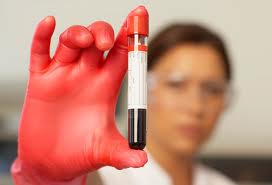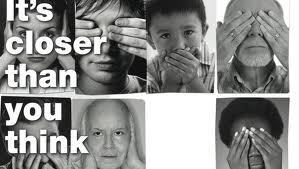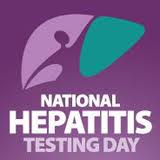
Are you planning to join us for the World Hepatitis Day Twitter Chat on Friday, July 27th? The CDC and HBF will be hosting a Twitter Chat at 2 pm EDT. Are you thinking, “What… me?? I don’t know how to use twitter!!” Well, get-on- board with twitter before July 27th and join us!
What is twitter? Twitter allows you to stay connected or exchange short messages called tweets with friends, family, co-workers, organizations and partners, and the world at large. You can tweet from your computer, your laptop, i-pad or smartphone. You can use it to update your status on the go, or in HBF’s case, use it to educate and raise hepatitis B awareness. We also use it to send out current or new information on hepatitis B and to make our resources available to others. If you are a hepatitis B advocate, twitter is a great outlet to get your message out there.
What is a handle? Your twitter username is your handle. For example HBF’s twitter handle is @HepBFoundation. Handles are preceded with a @symbol. You can find us at www.twitter.com/HepBFoundation.
What is a tweet? A tweet is basically a short message or status that you post to twitter. You can compose a tweet by clicking on the blue compose button in the top right corner, or from the “Compose New Tweet” box (top left after you login) Tweets are kept at 140 characters or less. If you make your tweets about 10 characters shorter, you’ll leave room for others to easily retweet your messages. Don’t worry. Twitter does the counting for you.
Your message can be just that – a message: “2 billion people in the world have been infected with #hepatitis B”, or you can add a reference to the source such as HBF’s website where you can find this quote A URL shortener will be invoked to take that long URLs like http://www.hepb.org/hepb/statistics.htm and turn it into: http://ow.ly/ciWvu
What is a retweet? A retweet or RT is when you repost someone else’s tweet so it will be shared with your followers. It lets everyone know you like that message and lets you spread the word. Retweeting is a great way to get started if you’re a little nervous about composing your own tweets. To retweet, all you need to do is put your cursor over a tweet that you like, and you’ll see retweet highlighted. Click and you’ve just done your first retweet!
What’s a hashtag? A hashtag allows you to categorize messages in twitter. You precede a keyword with a hashtag, or the “#” symbol, to note a topic of interest. I typically use simple twitter hashtags such as #hepatitis B, or #HBV in my messages so that others interested in HBV topics will see my tweets. Rather than put them at the end of a tweet, I typically work them into my message. For example: “There are 400 million people chronically infected with #hepatitis B in the world.” Lots of viral hepatitis followers are using the #hepatitis hashtag, so they are sure to see my posted tweet. The hashtag will allow them to easily search twitter from the search box (top right) in twitter and retweet my message. It might also encourage them to follow me since hepatitis B is an interest that we share. When I see tweeps tweeting with the #hepatitis hashtag, I tend to follow them, and if they continue to post good content, I might even add them to one of my twitter lists.
What is a Tweep? A tweep is a twitter user.
Getting Started. All you need to get started is an email account, a picture or logo (though twitter will assign you their default image if you don’t upload one, so don’t let that stop you.), and a statement about you or your organization.
Go to www.twitter.com and sign up for a new account. It’s really pretty simple. If you have your email and image ready to upload, you can be in and out in a few minutes. Twitter will walk you through the whole thing – nothing tricky!
So what should you do to become familiar with twitter? Assuming you plan to follow what’s new in the world of hepatitis B, our twitter chat on the 27th and viral hepatitis events beyond World Hepatitis Day, then consider a few things:
Who do you want to follow? Consider following viral hepatitis organizations like the Hepatitis B Foundation (@HepBfoundation), CDCs Division of Viral Hepatitis (@cdchep), World Hepatitis Alliance (@Hep_Alliance) or other favorite viral hepatitis orgs you may know. You may also consider following medical doctors, journalists, or viral hepatitis advocates you find out there in the big-virtual world. Don’t forget about the community at large. You’ll find others interested in hepatitis B by using the #hepatitis, #HBV or #worldhepday hashtags in the search box. Part of the goal is to educate and raise HBV awareness. At HBF, The world is our target audience. We are happy to follow, or be followed by anyone that is interested in hepatitis B.
Who will follow you? In the beginning, you’re not going to have a lot of followers. Don’t worry about it! Building a following takes time. Slowly but surely as you start participating, you will gain new followers. Start by “retweeting” someone you are following, and most likely they will follow you back if you are helping them get their message out.
The World Hepatitis Day Twitter Chat sounds great! How do I join the conversation? It’s simple. The Twitter Chat starts at 2 pm EDT on Friday, July 27th. Login to your twitter account and be ready to contribute. We will be using the #WHDchat hashtag for this chat. All you need to do is search twitter for the #WHDchat and it will generate a list with all of the tweets from the conversation. If you see a tweet that you like, retweet it. If you’d like to contribute to the conversation with your own message, compose your tweet and be sure to add the #WHDchat at the end of your tweet or no one will see it.
That’s it! Join the conversation on July 27th at 2 pm EDT!
 Election Day is fast approaching, and while there are many important issues to ponder, don’t forget to consider the candidates’ positions on vial hepatitis and health care issues. There are 435 seats in the House of Representatives on the ballot, along with 33 senate seats. The National Viral Hepatitis Roundtable (NVHR) sent surveys to the House and Senate asking them their position on viral hepatitis funding, the Affordable Care Act, the syringe exchange ban, HHS strategic plan, and the Viral Hepatitis Testing Act. Surveys continue to be returned, but were updated October 24th to reflect new additions. To read the returned candidate responses, go to NVHR’s Candidate Survey . If you don’t see your state’s candidate included in the collection of surveys, contact the candidate, educate them on viral hepatitis issues, and personalize the cause if you are able. If you need help, contact Ryan Clary, Director or Programs, and ask him about your Congressional candidate’s position on viral hepatitis prevention and treatment efforts, and what you might do to help the cause. Be sure to get out there and vote – Tuesday, November 6th.
Election Day is fast approaching, and while there are many important issues to ponder, don’t forget to consider the candidates’ positions on vial hepatitis and health care issues. There are 435 seats in the House of Representatives on the ballot, along with 33 senate seats. The National Viral Hepatitis Roundtable (NVHR) sent surveys to the House and Senate asking them their position on viral hepatitis funding, the Affordable Care Act, the syringe exchange ban, HHS strategic plan, and the Viral Hepatitis Testing Act. Surveys continue to be returned, but were updated October 24th to reflect new additions. To read the returned candidate responses, go to NVHR’s Candidate Survey . If you don’t see your state’s candidate included in the collection of surveys, contact the candidate, educate them on viral hepatitis issues, and personalize the cause if you are able. If you need help, contact Ryan Clary, Director or Programs, and ask him about your Congressional candidate’s position on viral hepatitis prevention and treatment efforts, and what you might do to help the cause. Be sure to get out there and vote – Tuesday, November 6th.









